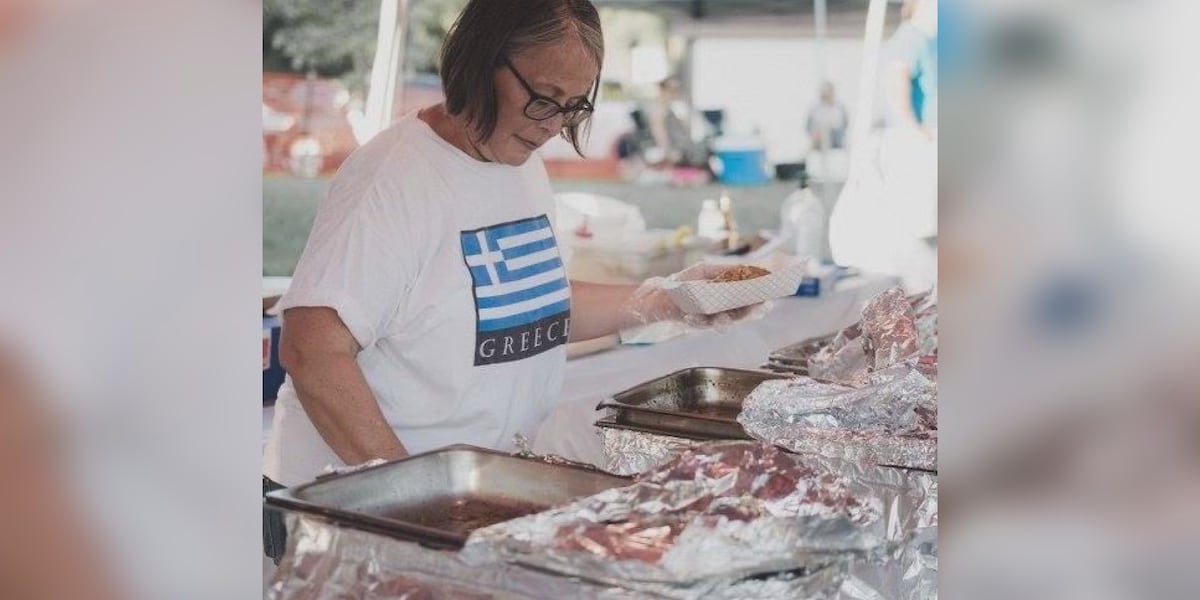
Vicky Leandros’ finale to her illustrious career has taken a sad turn as her father filed an extra-judicial demand forbidding her to sing the songs he wrote.
On Friday, September 6, the internationally famous Greek singer is scheduled to perform at the Odeon of Herodes Atticus in Athens to close her international farewell tour that started in early 2023.
It was her choice for her last concert to be in the ancient theater below the Acropolis rock, under the wonderful Attica night sky.
Yet, only days before the show, her 101-year-old father, Leo Leandros, sent an extra-judicial paper saying that she is not allowed to sing the songs he wrote for her in the concert.
This is an unexpected end to a 60-year career that elevated her to stardom from Europe to Japan. Her farewell tour is entitled “Ich liebe das Leben” (I love life!) and includes dozens of concerts in Germany and Luxembourg where she is most popular.
In November 2022, in an interview before she started rehearsals for the big tour to sing to her adoring audiences for the last time, she said: “I want to stop while my voice can still touch my audience.”
However, the extra-judicial demand of Vicky Leandros’ father adds a sour note to the much-anticipated event for her Greek fans.
Vicky Leandros’ father’s extra-judicial order
Public statement
of Leandros Leandros composer, lyricist, music producer to whom it may concern:
“I was blessed to have the original musical compositions I created or co-created in collaboration with friends and great colleagues such as Klaus Munro, Ralf Arnie and Michael Kunze, among others, performed for the first time by my daughter Vicky Leandros and become her greatest hits, with which she became world famous: “Ich liebe das Leben”, “Dann kamst du/Après toi” (with which Ms. Leandros was crowned the winner of the 17th Eurovision Song Contest), “Wo Du Bist (Da Bin Auch Ich)’, ‘Die Bouzouki Klang Durch Die Sommernacht’, ‘Drehorgelmann’, ‘Ich Bin’, ‘Karussel Amour’, to name just a few songs that I sign as composer and producer (Leo Leandros, Mario Panas ).
With an extra-judicial order that I have already sent, I forbid the public performance of the songs that I have created or co-created at the concert of Vicky Leandros at the Odeon of Herodes Atticus on September 6, 2024.
The way this Vicky’s “greatest hits” concert was described and promoted in the first place, combined with such a “resounding” failure to mention my name, degrades and diminishes both me as a composer and creator, as well as my works, thus insulting my rights and personality.
I learn that the belated communication efforts to refer to me and my name took place after the extra-judicial order was served, which does nothing but confirm this insult.
It saddens me to experience such an insult again.
This time, however, I was forced to invoke the provisions of the law for the protection of my personality and my work, because I owe it to the course of my life, my career and to myself, over a hundred years old.
I wish success in organizing the concert and to my daughter Vicky, expecting her to show due respect to my statements.
Pefki Evia, August 29, 2024
Leandros Leandros”.
Vicky Leandros’ remarkable talent
Born Vassiliki Papathanasiou on August 23, 1949 on majestic Corfu island, she is the daughter of singer, composer and musician Leandros Papathanasiou, also known as Leo Leandros and as Mario Panas. In 1958 her family moved to West Germany where she started her music career at 16, with her first single “Messer, Gabel, Schere, Licht”. Her father composed and arranged the first songs the young Vicky sang.
Just 18 years old in 1967, she represented Luxembourg in the Eurovision Song Contest with the song “L’amour est bleu,” making history as the first Greek artist to represent another country in the competition. She made 4th place and the song became an international hit, selling millions of copies around the world and covered by other artists as well.
But that was only the beginning. In 1972, she represented again. This time, Leandros emerged victorious and won first place for the tiny European state with the song “Après Toi”. Again, the song became a global hit, turning the Greek singer into international super star overnight.
An avid polyglot, Leandros recorded the song in seven more languages, including Japanese, to reach every corner of the World. Her rare ability to sing in other languages and sound like a native was one of her great advantages. This made her connect with audiences from different countries and she created a dedicated international fanbase that is still loyal today.
For instance, when she sang “Watashi no Sukina Chocolate” which is Japanese for ”The Chocolate That I Like” along with the “Yogiri No Naka De” (In the Foggy Night), the songs became a great success in Japan in the late 1960s and the early 1970s.
By singing in Japanese, Leandros did something that not many other Western singers have done. She connected profoundly with the people of Japan thanks to her ability to speak foreign languages like a native. This alone boosted her career in the eastern country.
Leandros’ strategy was to record albums that were catering to specific markets. For instance, she recorded 31 albums for the Japanese market alone, something that very few artists ever managed. Overall, her records were successful upon their release because her fan base was big and wide. Recording albums in different languages and musical styles kept widening her audience base.
A 60-year career
The success of Vicky Leandros continued throughout the 1970s and 1980s. During those years she managed to popularize Greek music. Hit singles like “When Bouzoukis Played” and “Theo, wir fahr’n nach Lodz” topped the European charts, bringing Greek music to more ears instead of it being confined within the borders of Greece and Cyprus. Leandros even hosted her own television specials that were broadcast across Europe, including on the BBC in the UK.
In 1982 Leandros married Greek businessman Ivan Zisiadis, with whom she has a son, Leo. In 1986 she married for the second time with Enno Freiherr von Ruffin, with whom she had two daughters, Milana and Sandra.
Despite the fact that in the world of music, new trends come and go, new faces appear and people get forgotten, Leandros remained a staple for people who had followed her since the 1960s. She continued to record music and perform regularly. She also collaborated with other well-known artists like Demis Roussos, mixing unique elements of music that became iconic. Her albums and singles earned gold and platinum certifications in many countries showing how beloved she remained across the continent.
In the 2000s Leandros became more active by producing her own albums. In 2003 she recorded a new album Tragoudi Alliotiko with songs by Mikis Theodorakis accompanied by the Kamerata Orchestra under Theodorakis’ supervision. The album became a success in Germany, central Europe and Greece.
In 2003, she received two prestigious awards from the Greek government for her promotion of Greek culture and music abroad and another from the Greek Orthodox Church for her work for the children of Africa.
Today, after a truly fascinating career that spanned nearly six decades, Vicky Leandros announced in 2023 that she would retire from music. She has told fans that she will give a series of farewell concerts in her beloved Germany and Austria as a final gift to the devoted fans who have followed her for years.
The impact of Leandros on the world of music cannot be overstated. As one of the very first –and few– Greek artists to achieve massive international success, she paved the way for later artists and helped bring Greek music to a global audience.






